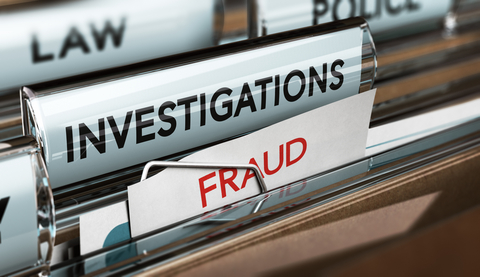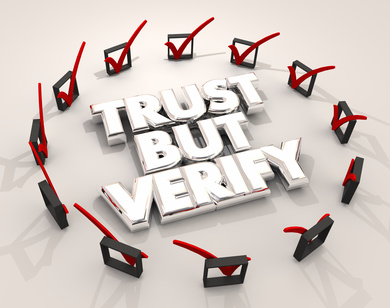Spotlight on fraud: Catching up on the Elizabeth Holmes trial
For fraud fighters worldwide, the spotlight is currently on the Elizabeth Holmes criminal trial, which started last week in San Jose, California. The case, U.S. v. Elizabeth Holmes, et al., is the culmination of a broad investigation into Holmes’ and her then-boyfriend Sunny Balwani’s…”allegedly deceptive representations about their company and its medical testing technology” and how they “…engaged in a multi-million-dollar scheme to defraud investors, and a separate scheme to defraud doctors and patients.”
The trial’s been delayed several times due to COVID and Holmes’ pregnancy, and now it’s postponed again, because a juror tested positive. The suspense is building, too, amid stories that Holmes’ defense may hinge on Balwani’s emotional and sexual abuse. Whatever the outcome of this fraud trial, expect more twists and turns and, most likely, more drama.
Before we get too far into the trial, though, it’s a good idea to gather some background information. To help us get up-to-speed on past developments and follow what’s coming up, I’ve compiled this short list of go-to sources:
- View the public notification posted by the U.S. Department of Justice and read selected case documents and other details, including trial status and access to proceedings, at the U.S. District Court Northern District of California site. This is the official record, so it’s always the best place to start.
- Definitely read John Carreyrou’s book, Bad Blood: Secrets and Lies in a Silicon Valley Startup, which exposes the full story of Theranos. Carreyrou, a journalist with the Wall Street Journal, provides the details and context we need to follow this story. How did this alleged fraud get started? How did so many sophisticated investors fall for the hype? Who initially raised the alarms, and how did the scheme unravel? I plan to skim through this book again to remind me about some of the details.
- This case illustrates the consequences of not conducting an adequate due diligence investigation before investing your money and your reputation, especially in a technology that can forever alter the course of people’s health and lives. Answers to some simple questions could have made a difference: Does it work? Do the numbers make sense? Have requests for more information been met with transparency? One early revelation was that some big investors skipped the due diligence, because “the other guy probably checked them out.”
- For some quick details about the trial, the New York Times offers this summary. It includes jury info, what we know about Holmes’ defense, and who will testify. Also, this Forbes summary contains some important key facts.
- In any fraud case, it’s important to remember the real victims. Here, it’s the patients–those who trusted their health providers. The individuals with their false positives and negatives. And the stories about big decisions that were based on bad information. Read about the loss of patient data, the fight for patients to be heard, and why it’s so important that we listen.
- To follow the trial in real time, look to Twitter. Thanks to fellow fraud fighter Kelly Paxton, I’m following updates from journalist Dorothy Atkins, which is where I first learned about Elizabeth Holmes fan girls.
While the trial is sure to provide a little entertainment for the next several months, I hope that, in the end, we learn something. Learn more about how fraud works. The causes and the effects. In the end, will we see consequences and justice for the victims, or not enough proof to convict? What’s your take?



Great post Marcy. I recently started reading “Bad Blood” because of this trial and for the reasons you stated. I also recommend “The Key Man,” a recently published book by WSJ reporters about the fraud case against Abraaj Capital and one of its founders, Arif Naqvi. Riveting reading there as well. He’s fighting extradition from the UK to the US to face trial.
Thanks for the recommendation, Chris.